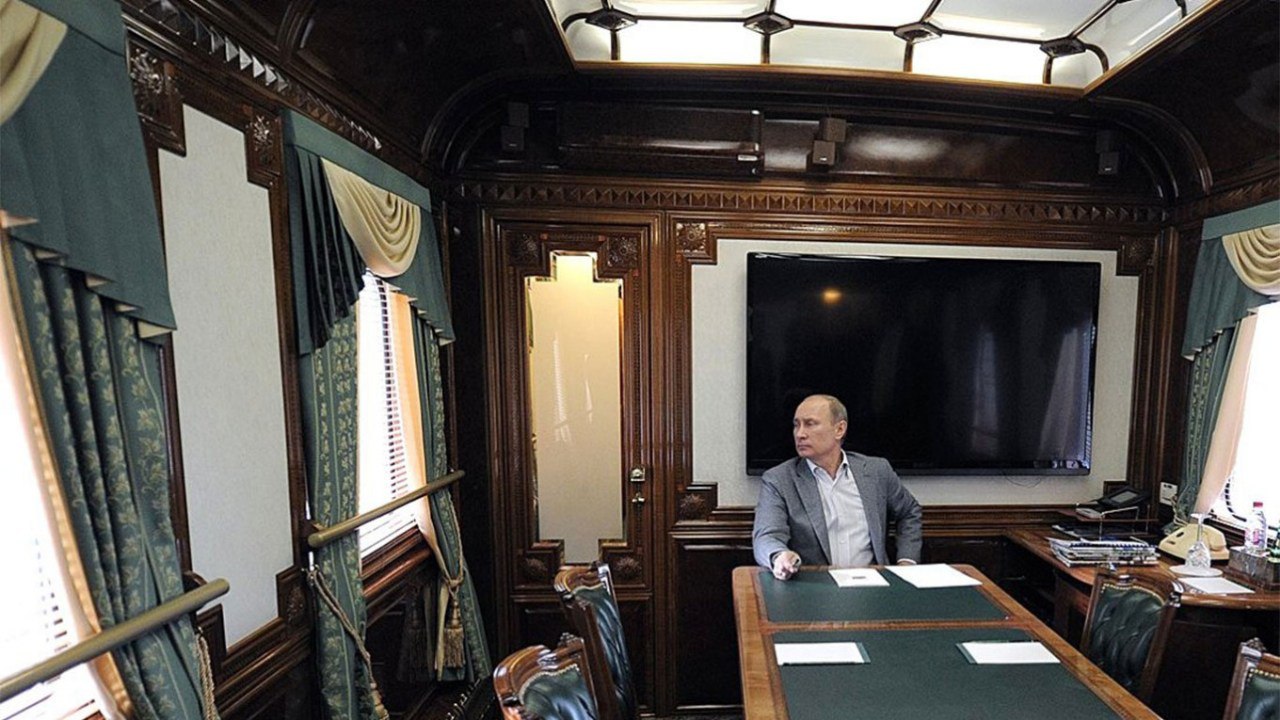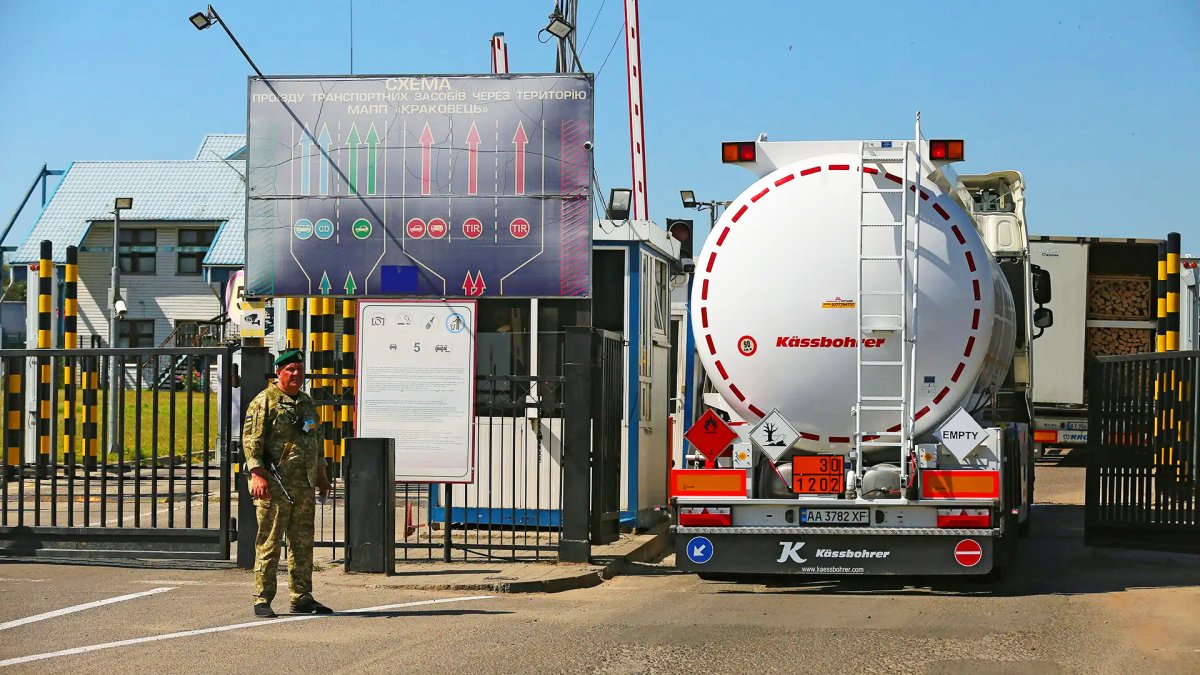The second thing to note is that the logic outlined (threaten to take Crimea and negotiations take place) is a fallacy because we are not going to dictate, as our official public position, what Zelensky should see as acceptable terms of peace. According to Zelensky, they are not going to settle until they take the entire pre-2014 territory and incorporate it back to Ukraine, which they cannot do in the foreseeable future as per Pentagon (and other numerous common sense sources):
Ukraine can’t retake Crimea soon, Pentagon tells lawmakers in classified briefing
So, on the one hand, we are willing to escalate this significantly (very, in my opinion), in order for Ukraine to achieve the goals they have defined; on the other, our goals are pretty different, because we are clearly willing to sacrifice (at least) Crimea, as indicated by “threatened to lose it hence negotiate”, while Zelensky’s (unattainable) goal is to return it.
Furthermore, one of our official goals is to improve the Ukrainian position on the battlefield in order to have a better outcome in the negotiations. Is that not what has been declared numerous times? Once again, the Ukrainian position is that there are no circumstances under which they are going to negotiate with Putin and his regime. As described above, Putin is expected to live a long life yet and is also expected to remain to be the leader of Russia for some other (or the same) extended period of time.
Note, our own position went from the “butcher” and “cannot be allowed to stay in power” (as per Biden) to “rational actor who miscalculated” (as per Biden). Also note that I keep saying “we” and “our” because the United States, for the most part, has the greatest control (as the largest “donor”) of how things have been and will be evolving. Also, being in Canada, we are basically a reflection of their policy. That is probably true for numerous other actors. However, there are also dozens of other countries, including those in the EU and the EU itself, that also have their own positions, interests, and ideas of how far the conflict should be allowed to go and what the acceptable resolution is. Even within the EU there is plenty of tension, disagreement, and no clear single defined vision on the situation.
So, again, on the one hand, we are telling Zelensky that we are going to provide help and support as long as it takes. As long as what takes though? On the other hand, we are telling Putin that we are willing to (eventually?) negotiate and potentially sack (at least) Crimea. Negotiate what exactly?
The way we have and are setting this is up is to keep this going, potentially infinitely. Both sides, Russia and Ukraine, believe that they can at the very least gain if they keep this going. (Can we?) There is no winning here, in my opinion, regardless of how things end. Not for Russia or Ukraine at least.
To add more confusion, we promise hundreds of tanks, for example. And here “we” is pretty confusing because numerous players promise various things as individuals, at the same time not willing to act individually without coordination with the rest of the group. Once that coordination takes place, we, as a group now, realize that we cannot deliver anywhere near the amount of tanks that individual players have promised:
Ukraine to Receive Fewer Battle Tanks From Allies Than Promised
German Defense Minister Boris Pistorius indicated that western allies are struggling to put together two full battalions of Leopard 2 tanks to send to Ukraine as promised.
Germany and Portugal are the only two nations to commit to sending the A6 version of the Leopard 2, with 14 pledged by the government in Berlin and three from the Portuguese, Pistorius told reporters Wednesday after meeting NATO counterparts in Brussels. “We will not reach the size of a battalion,” he said.
Poland has assembled about 30 units of the older A4 version of the Leopard 2, which is almost enough for the standard Ukrainian battalion of 31, but many of them are in poor condition and need repairs before they can be deployed, Pistorius said. Those tanks will only get to Ukraine at the end of April, he added.
The minister’s admission marks a setback in the bid by western allies to help the Ukrainian army deal with an expected intensification of fighting in coming weeks.
The same goes for jets. Poland says we need to provide jets. Biden says no from the American side, but won’t stop others if they decide to do so. In turn, Poland now says it is too dangerous, complicated, and they don’t have enough; neither would they do it without coordination with their partners. Scholz says almost categorically no. Yet Britain says nothing is off the table, knowing full well that they will likely need permission from Germany and Italy to send those aircrafts on their way to Ukraine. This can be continued with more examples but I believe this is sufficient.
While all this is happening, we are heading toward escalation and increasing risks even further to achieve what exactly? Again, I have ideas, but they probably belong in the other thread as well.
In the meantime, Ukraine, according to their government officials and, more notably, IMF, needs at least $3-5B of external help in budgetary needs alone, just to function and exist as a state (source is
IMF)
So, $36-60B per annum, considering Russian attacks do not intensify and cause further damage (it would probably be fair to assume that they will?). As we saw over the past year, they require about the upper range of those numbers in military assistance (and that is only what we know of, we can all suspect that what has been actually provided could be significantly higher) to basically stay afloat and the amount will only grow as their own stockpile disappears. In addition, Zelensky mentioned a couple of weeks ago that the “spirits” aren’t as high as they used to be (
source, via Google translate):
"Motivation is given not only by partners. Motivation is given by spirit within the state. I believe that at the very beginning of the war the spirit was stronger. We were all at war. In cities where there was no occupation, we had a full feeling that we were all at war. Now I see in some cities that they are on vacation," he said.
Zelensky said that he considers it a "weakness."
"I want to appeal to you, first of all, to journalists, and first of all to journalists of our state. You need to unite as soon as possible, strengthen this spirit, remind those who rest inside our state that we are all at war, and remind how it all began. […]”
What about the “spirit” of others, namely supporters? How long can we except the populations of the western countries providing the assistance to support doing so? In, and most importantly, the United States, the polls indicated that the numbers have dropped significantly since last March (
source):
December polling from Morning Consult found that only 41 percent of voters were “very concerned” about the Russian invasion of Ukraine, down from 58 percent who said the same in March of last year. The same poll showed a decline in the share of voters who felt that the U.S. has a responsibility to protect Ukraine from Russia, from 47 percent in March to 40 percent in December.
That would be 17% drop in about 10 months. The most recent poll by the AP suggest a similar picture:
https://apnews.com/article/russia-ukraine-biden-politics-poland-33095abf76875b60ebab3ddf4eede188
Certainly, as things drag on, the support will drop further. On the other hand, RAND argues (in some convincing ways) that it doesn’t matter
here.
So what are the goals here? That would be our goals because they are clearly not necessarily the same as the Ukrainian goals. Dragging this on is not sustainable from any perspective, as outlined above and in my other post in regards to depleted ammunition stockpiles and, not the least, actual Ukrainian personnel to fight the fight will grow too thin.
Sure, we will have the next few months to see what happens with the offensive. Important to note is that the exact same things are being communicated now as they were last… spring-ish? These would be that we are at a crucial moment of the conflict and we need to supply Ukraine with everything they need in order for it to improve its position on the battlefield and, therefore, in the negotiations. However, since we have been told this the first time, Ukraine not only unilaterally withdrew from the negotiations, but is also rejecting the idea of any negotiations all together. Ironically, that is a direct result of its position on the battlefield being dramatically improved due to supply of our weapons, recon, intelligence, monetary support, etc.
As you can see, this has nothing to do with “Putin strong”, “afraid of Putin”, and so on. A good chunk of logic is clearly missing while we are potentially heading toward a no return scenario.





















